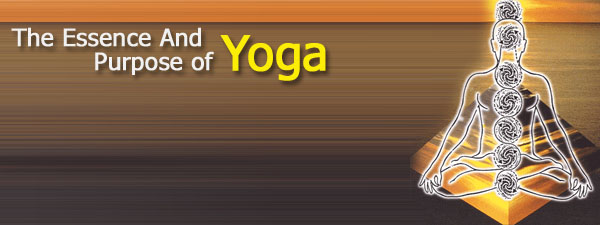
|
Yoga as a spiritual discipline is contained in the Vedas and the Upanishads. It is not a mere physical or mental exercise. (A yoga disciple strives to overcome avidya and attain vidya or pure consciousness.) Yoga has two preliminary ethical aspects: Yama (self-restraint) and niyama (Observance). Yama include forbearance from violence, false- hood, theft, Incontinence and greed; niyama includes purity, contentment, acceptance, austerity, discipline, study by oneself and of yoga doctrine and abandonment or rendering oneself open to the divine. It is important to understand that certain asanas and concentration upon specific chakras or meditation produce energies that often the sadhaka (disciple) is unable to control. He might find that all that is weak, impure or discordant is strengthened, making him over individualistic. He might find himself in the paradoxical situation of seeking peace and supersensible bliss, and evading it instead with a surplus of energy that he can neither understand nor direct. He may enter into a state of profound conflict. On the one hand, he aspires towards the divine; on the other, he does not follow the ethics required for his purpose. The clash of energies can have unforeseeable consequences. The practice of yoga, like being a priest, a doctor, an engineer
or craftsman, requires being qualified. One must have To practise. yoga, five factors are fundamental: Instrument of Realisation: Patanjali in his Yoga Sutras states cause of bondage is the between the seer-sow and the of generation. Plato, the Greek philosopher, also says that the soul, by entering into generation and by identifying with it has forgotten its pristine nature. Dialectics is the the instrument of realisation. Yoga must not be taken as a mere physical or mental exercise used
to that the attain simple psychological comfort, union when life
has reached a level of seen world pathological stress. |